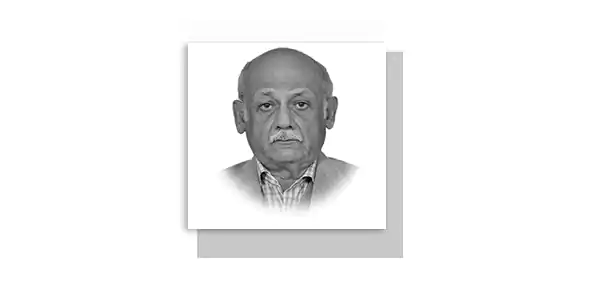December 16th 1971, a date that will live in infamy in the tumultuous history of Pakistan. It has now been 53 years since the 1971 war between India and Pakistan that resulted in the emergence of Bangladesh as an independent country. This day is remembered as the victory of the Bengali nation against the occupation army of Pakistan in Bangladesh, it is celebrated as a victory day in India because of the unconditional surrender of the Pakistan army and in Pakistan it is a reminder of pain, agony and shame when the majority of its people broke away from the minority to establish their own independent country. What happened and why, or who were the people responsible for the tragedy of 16th December 1971 is still shrouded in mystery.
The Hamood Ur Rahman Commission report of 1972 is yet to be made public and the identification of the main culprits is still a matter of theory and conjecture. It is now accepted by the historians and intellectuals of Pakistan that the struggle for Bengali rights in East Pakistan had started very soon after independence. The main reasons were the economic disparity between the two wings of the country, the domination of all important positions by the West Pakistanis, the non-representation of Bengalis in the armed forces and civil service of Pakistan, the prejudice and hatred for the Bengali language and culture by the Pakistani elite and the difference in the cultural and social values of the two wings of the country. The December 1970 elections resulted in a massive victory for the Awami League when they captured 167 seats in the national assembly of 330 members. The military Govt. led by General Yahiya Khan refused to accept the results of the elections and launched Operation Search light to sort out the Bengalis and this military crackdown proved to be the last nail in the coffin of a united Pakistan.
Pakistan was the first country from the old British colonies to disintegrate in 1971 and the happenings of this tragic even still haunt the Pakistani nation but unfortunately hardly any research has been done to identify the reasons why the largest Muslim nation failed miserably to protect its unity and this day continues to be remembered in Pakistan as a day of grief and mourning, a day when the two nation theory sank in the Bay of Bengal and Jinnah’s Pakistan broke up . Today even more than half a century of separation the two countries have failed to establish friendly and cordial relations. The bitter memories of the past still haunt both countries and the ghosts of the past tragedy have not been laid to rest. The severe wounds inflicted in 1971are still fresh and haunting those who suffered immense pain and tragedy on both sides.
16th of December is a tragic reminder of the breakup of the dream turned into reality by Mohammed Ali Jinnah in 1947, and it also reminds us that religion alone cannot keep a people united without responsible governance and economic justice. Is it possible for Pakistan and Bangladesh to forget the past, heal the wounds of 1971 and look to the future in an objective and pragmatic manner? To do this a lot of work has to be done. First of all forms of doctored and inaccurate history must be erased and corrected. The reality and truth of the relations between the two wings from independence to 1971 must be taught in our schools and colleges. Scholars and political scientists from both countries must put their heads together in a new truth and reconciliation commission and analyze the entire social political and economic causes of this great tragedy and what can be done now to launch a damage control exercise and mend relations between the two countries for the sake of our future generations.
The initiative taken by Shahbaz Sharif during the recent meeting with the Bangladeshi leader DrYounas on the side lines of the Cairo Conference is the right step in this direction and has improved our relations from the frosty period of the Sheikh Hasina regimewho had a clear and marked preference for India and was the least interested in improving relations with Pakistan. During this meeting both leaders agreed to settle differences and move forward in a friendly and cordial manner. Dr. Younas made it clear that he wants to reactivate the SAARC and the Pakistani PM reciprocated the same sentiments very warmly. Ever since the Hasina Govt. was removed after a public uprising in Bangladesh the new regime has shown a great desire to improve relations with Pakistan and the positive attitude of Dr. Younas show a great longing for better relations and improved trade ties in a relationship that has seen many highs and lows since the tragic happenings of 1971. The relations between the two countries are historical and cannot be denied.
Unfortunately the 1971 war was used by the Awami League to create hatred and hostility towards Pakistan but now half a century later the desire of the new Bangladeshi Govt. to improve relations is a very welcome gesture. The desire of the Bangladeshi Govt. for a formal apology from Pakistan should be taken seriously but this should not be a precondition for bilateral talks to improve relations.The secession of East Pakistan was undeniably the greatest tragedy in the history of Pakistan. The truth and bitter facts of that tragedy must be acknowledged and both countries should now adopt a policy of forgive and forget and look to the future in a spirit of reconciliation and mutual respect.
—The writer is Professor of History, based in Islamabad.










